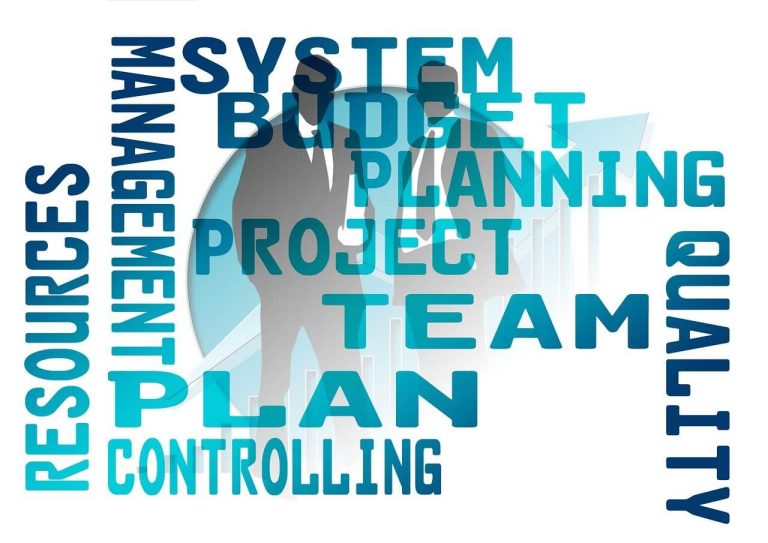Philanthropic Financial Planning: Full Guide
Learn how philanthropic financial planning can help you align your wealth with your values, maximize your impact, and enjoy tax benefits. Start making a difference today.
Welcome to the world of discovering philanthropic financial planning, where your wealth and values align to create a lasting impact. As a compassionate individual, you want to make a difference in the world and the lives of others, but may not have a clue on where to begin.
Worry not. This comprehensive guide will walk you through the process of aligning your financial resources with your philanthropic goals and enable you to:
– Maximize your giving capability
– Create a lasting legacy
– Support your favorite charities and causes
– Achieve tax benefits and financial efficiencies
– Leave a meaningful impact on the world and individuals
Through discovering philanthropic financial planning, you can achieve your first step in creating a value-based wealth management plan.
What is Philanthropic Financial Planning?
A philanthropic financial plan is the process of integrating charitable giving into your overall financial plan to maximize impact while considering financial goals and tax implications. It
helps you figure out the smartest, most impactful ways to give back to causes you care about, while also keeping an eye on how it affects your taxes and overall financial health.
There are various ways to strategize and discover a philanthropic financial plan. You could set up an endowment, start your charity, or contribute to a donor-advised fund, among other options. Deciding which option is right for you will vary based on your preferences for flexibility, your ability to absorb administrative costs, and how much you would like to donate over the years.
To make the biggest impact, so that you can be assisted in crafting a clear mission statement for your giving, you will have to work with your professional team, your financial advisor, attorney, and certified public accountant [CPA]. Working with them will give the greatest opportunity to express your gratitude and empathy for the communities and causes you value most with their help to integrate a strategy of giving into your larger financial plan.
Benefits of Philanthropic Financial Planning
The benefits of philanthropic financial planning are so vast, thereby offering you a win-win option, as you will benefit and your cause:
- Contentment: The inner peace, self-realization, and satisfaction you experience from giving back to your community and making a positive difference.
- Tax Advantage: Philanthropic giving often qualifies for tax deductions, potentially reducing your overall tax liability.
- Legacy Building: Create a lasting effect by structuring your giving to extend beyond your lifetime, supporting causes you value for generations to come.
- Goal Alignment: Financial planning avoids a clash between your charitable aspirations and your financial security for retirement, healthcare, or other crucial needs.
- Increased Influence: Strategic planning ensures your donations are directed towards organizations and initiatives that align with your values and maximize their effectiveness.
Challenges of Philanthropic Financial Planning
Navigating Complex Regulations
Charitable giving involves navigating a complex web of rules and regulations. There are many legal requirements to follow. Missteps can lead to legal issues that can undermine your charitable goals. Staying compliant requires careful attention and often the help of experts. While these rules aim to ensure transparency and protect everyone involved, they can be overwhelming for those who want to give back.
Unpredictable Tax Changes
Tax laws are constantly changing due to political, economic, and social factors. What is a tax-efficient strategy today might not be advantageous tomorrow if new laws are enacted. This uncertainty can be stressful for those committed to charitable planning. To manage this risk, it’s important to stay flexible and consult regularly with tax and financial advisors to adjust your plans as needed.
Risk of Misuse by Charities
Not all charities operate with the same level of transparency and efficiency. There is a risk that donations may not be used effectively or could be mismanaged. To avoid this, donors should thoroughly research the charities they support. Look for organizations with clear financial reports and proven impact. Ensuring that your contributions are managed well is crucial for achieving your philanthropic goals.
READ ALSO: How to Predict Real Estate Market Trends
READ ALSO: How to Read and Understand Your Bank Statements 2024
READ ALSO: How To Be a Successful Digital Payment Agent: Full Guide
READ ALSO: Modern Ways of Saving Money in Nigeria: Full Guide 2024
Developing a Philanthropic Financial Plan
Defining Your Charitable Goals
Identifying causes or organizations to support is a crucial step in defining charitable goals in philanthropic financial planning. Here’s why:
1. Clarity of Purpose: Clearly defining the causes or organizations you want to support helps establish a sense of purpose and direction for your philanthropic efforts.
2. Focus: Identifying specific causes or organizations allows you to concentrate your resources and efforts, maximizing the impact of your giving.
3. Alignment with Values: Supporting causes or organizations that align with your values ensures that your philanthropy is authentic and meaningful.
4. Effective Giving: Researching and selecting reputable organizations or causes ensures that your donations are used efficiently and effectively.
5. Tax Benefits: Donating to qualified organizations can provide tax benefits, optimizing your philanthropic financial planning.
6. Legacy: Supporting specific causes or organizations can create a lasting legacy, reflecting your values and contributions.
7. Engagement: Identifying causes or organizations can foster deeper engagement and involvement, leading to a more fulfilling philanthropic experience.
8. Impact Measurement: Clear goals enable measurement of the impact of your philanthropy, allowing for adjustments and improvements.
Assessing Your Financial Situation
Guidelines on evaluating income, assets, and goals in determining giving capacity to consider:
- Calculate Total Income: Combine all sources of income, including salary, investments, and passive income.
- Assess Stability: Evaluate the stability and reliability of each income source.
- Consider Tax Implications: Factor in taxes and deductions to determine net income.
- Evaluate Assets: Assess liquid assets, such as cash and investments, and their growth potential.
- Debt and Expenses: Consider outstanding debts, living expenses, and financial obligations.
- Emergency Fund: Ensure a sufficient emergency fund (3-6 months’ expenses) before allocating funds for giving.
- Retirement Savings: Prioritize retirement savings and ensure adequate contributions.
- Inflation and Growth: Consider inflation and potential growth in income and assets.
- Time Horizon: Evaluate your time horizon towards charity, considering short-term and long-term goals.
- Professional Advice: Consult with a financial advisor to ensure accurate assessments and personalized guidance.
Exploring Charitable Financial Methods
When exploring different donation options, we look into:
- Donor-Advised Funds: This allows you to make large tax-deductible donations into a fund that can distribute its assets over time. It is a charitable fund that a third party manages and is flexible, thereby having potential investment growth.
- Qualified Charitable Distributions [QCDs]: This process is more flexible for retired persons. It allows you to avoid taxation thereby making your donations count towards your retirement portfolio’s minimum distribution [RMD].
- Donating Assets: Your immediate instinct may be to give cash, and that describes most philanthropic or charitable donations. However, gifting appreciated assets such as Bonds and stocks, etc, to organizations, particularly large or sophisticated ones, is often one of the most valuable forms of giving. A donation of securities or other investment products can allow the group to build its wealth over time, funding operations far into the future.
- Setting Up an Automated Monthly Donation: These donations are highly impactful to charitable organizations and you. These organizations benefit greatly from consistent charities, enhance donor retention, and opportunity to showcase the impact of your donations.
Implementing the Plan
Professional Guidance
The benefits of consulting advisors for customized strategy involve a personalized approach, and tailored guidance that aligns with your unique goals, values, and financial situation. You will be able to access expert knowledge as advisors possess specialized expertise in philanthropic planning, tax laws, and investment strategies.
You will be advised with unbiased guidance, helping you make informed decisions. Advisors run comprehensive analyses of your overall financial situation, identifying opportunities and challenges.
Professional guidance also enables you to achieve tax efficiency, investment alignment, family dynamics, impact maximization, flexibility, accountability, access to networks, legacy planning
Professional guidance aids a lot when trying charitable financial giving.
Maximizing Tax Benefits
When maximizing tax benefits in philanthropic financial planning, consider the following important tax implications and strategies:
Tax Implications:
1. Charitable Deductions: Donations to qualified charities may be tax-deductible.
2. Capital Gains Tax: Donating appreciated assets can avoid capital gains tax.
3. Estate Tax: Charitable bequests can reduce estate tax liability.
4. Income Tax: Charitable donations may reduce taxable income.
Strategies:
1. Bunching: Grouping donations in a single year to maximize deductions.
2. Donor-Advised Funds: Allowing for flexible timing of charitable donations.
3. Charitable Trusts: Providing tax benefits while supporting philanthropic goals.
4. Appreciated Assets: Donating appreciated stocks, real estate, or other assets to avoid capital gains tax.
5. Qualified Charitable Distributions (QCDs): Directly transferring IRA funds to charity, tax-free.
6. Charitable Remainder Trusts: Providing income for life while supporting charity.
7. Tax-Loss Harvesting: Offsetting capital gains with losses to minimize tax liability.
8. Philanthropic Entities: Establishing private foundations or supporting organizations for tax benefits.
9. Timing: Coordinating charitable donations with tax planning to maximize benefits.
10. Documentation: Maintaining accurate records to support charitable deductions.
It’s essential to consult with a tax professional or financial advisor to ensure compliance with tax regulations and optimize your philanthropic financial plan.
Five Ways a Financial Advisor Can Assist with Charitable Giving
Clarify Your Goals
If you’ve always wanted to set up a scholarship, create a foundation, or support a cause but need help figuring out how to start, a financial advisor can help. They can develop a detailed charitable giving plan that aligns with your financial goals and personal desires. This plan takes into account your age, financial situation, and donation capacity and gives you control over when and how your contributions are made.
Maximize Your Giving Impact
If you’re just writing checks to charities, you might be missing out on tax advantages. A financial advisor can suggest strategies to enhance your giving:
- Bunching Donations: Combine several years’ worth of donations into one year to exceed the standard deduction and gain more tax benefits.
- Donating Appreciated Assets: Give stocks, bonds, or other appreciated securities directly to charities to avoid capital gains taxes and receive a deduction for the total market value.
- IRA Contributions: If you’re over 70½, donate directly from your IRA to reduce your taxable income and meet your required minimum distribution.
Set Up a Donor Advised Fund
Donor advised funds are popular for good reasons. Contribute to these funds to get an immediate tax deduction, and then distribute the money to charities over time. The funds grow tax-free, increasing the total you can donate. A financial advisor can help you select the right donor-advised fund, considering fees, investment options, and administrative support.
Create Foundations and Grants
Starting a private foundation gives you control over how your funds are used. It involves setting up a mission statement, board of directors, and managing legal requirements. Your financial advisor along with legal and tax experts can guide you through this complex process and help with investment management for the foundation’s assets.
Incorporate Charitable Giving into Estate Planning
If you want to leave a lasting legacy, a financial advisor can help integrate charitable giving into your estate plan. This could involve setting up a charitable remainder trust to provide income during your lifetime, tax deductions, and the remaining assets going to charity upon your death. Alternatively, naming a charity as a beneficiary in your will or trust can reduce your taxable estate. A financial advisor will assist in exploring these options and choosing the best strategy for your goals.
FAQs
Q: Who can benefit from philanthropic financial planning?
A: Anyone with a desire to support charitable causes can benefit, particularly individuals passionate about giving, high-net-worth individuals, those nearing retirement, and those seeking effective giving strategies.
Q: What are the key elements of a philanthropic financial plan?
A: Key elements include defining charitable goals, assessing your financial situation, exploring giving methods, considering tax implications, developing a giving plan, and regularly reviewing your plan.
Q: How can I get started with philanthropic financial planning?
A: To get started, consult a financial advisor, research non-profit resources, explore online resources, and take the first step towards strategic charitable giving.
Conclusion
In conclusion, philanthropic financial planning is a powerful tool for aligning your wealth with your values and creating a lasting impact on the world. By defining your charitable goals, assessing your financial situation, exploring charitable financial methods, and implementing a personalized plan with professional guidance, you can maximize your giving potential and achieve a fulfilling philanthropic experience.
Additionally, understanding the tax implications and strategies can help you optimize your giving and minimize tax liabilities. Through charitable financial planning, you can:
– Achieve a fulfilling philanthropic experience
– Maximize your giving potential
– Minimize tax liabilities
– Create a lasting legacy
– Align your wealth with your values
Remember, philanthropic financial planning is a journey, and by taking the first step, you can transform your wealth into a force for positivity, empathy, and generosity, and start achieving your philanthropic goals.







